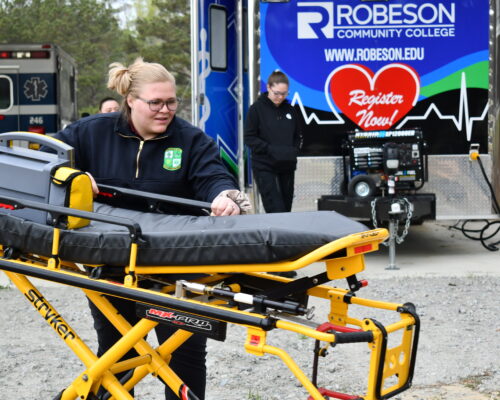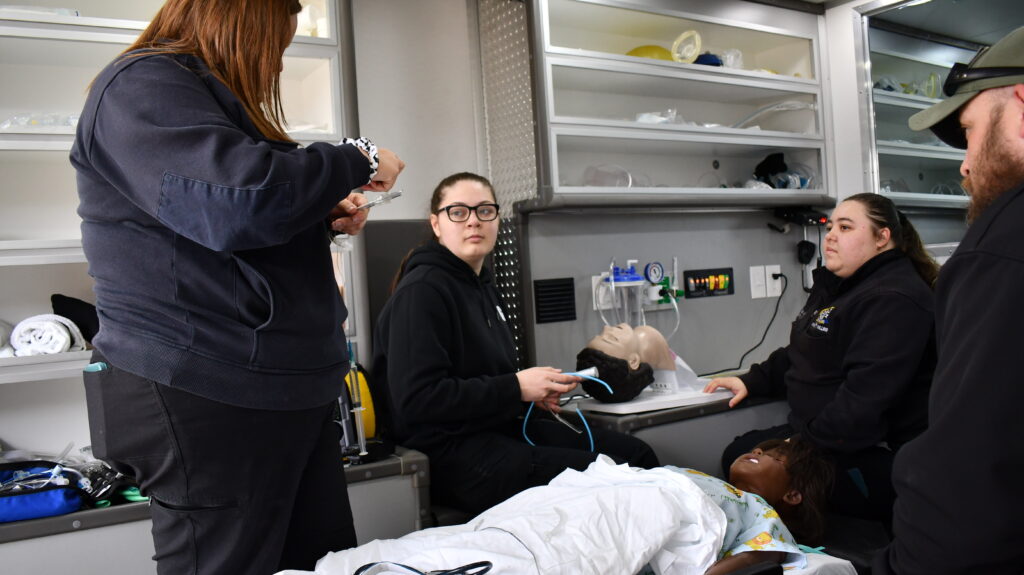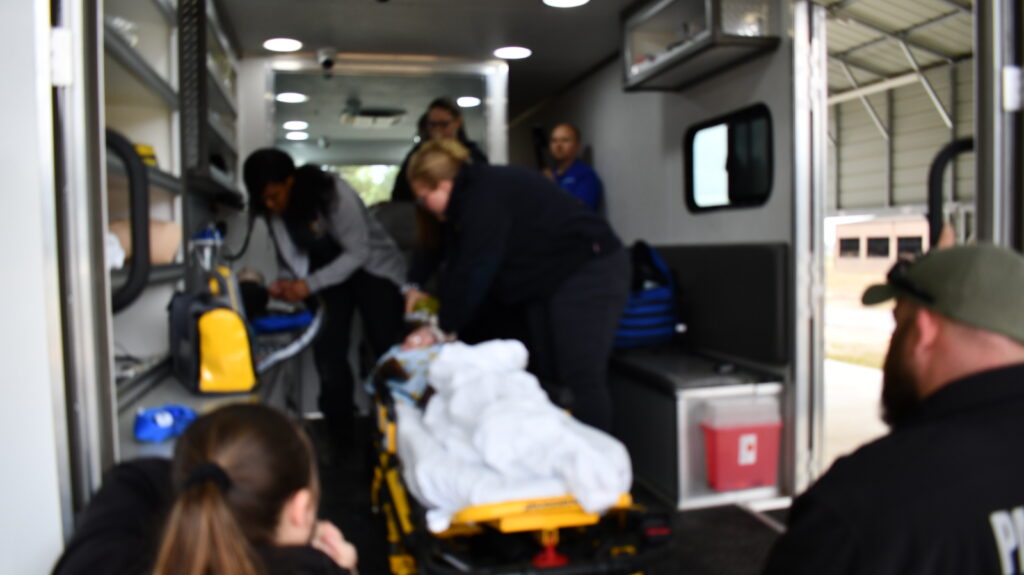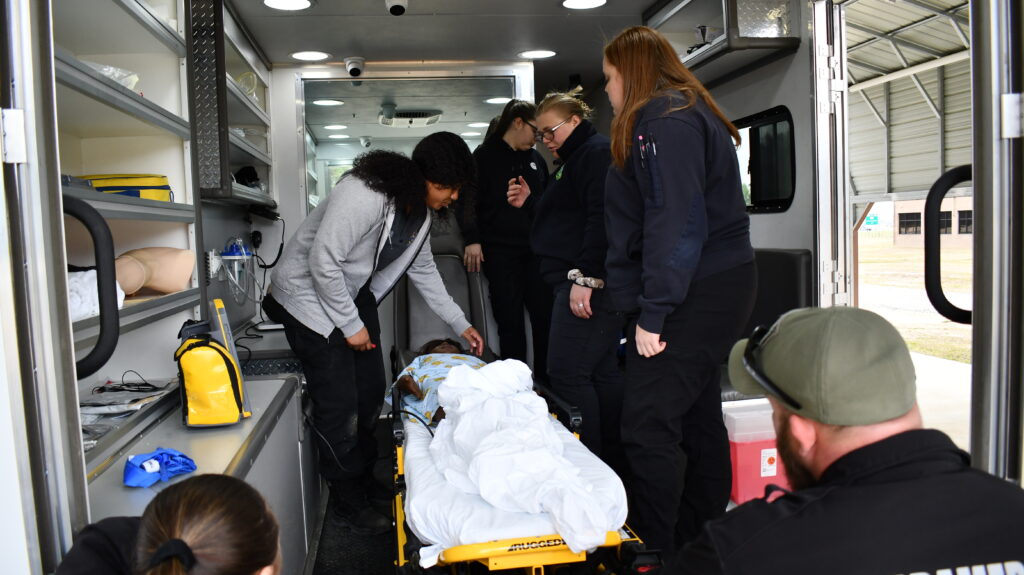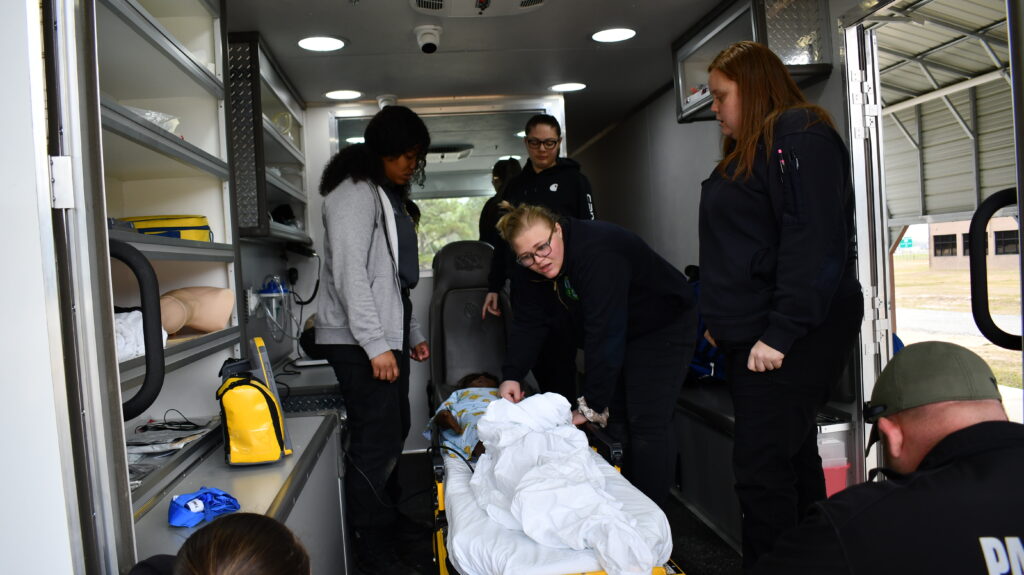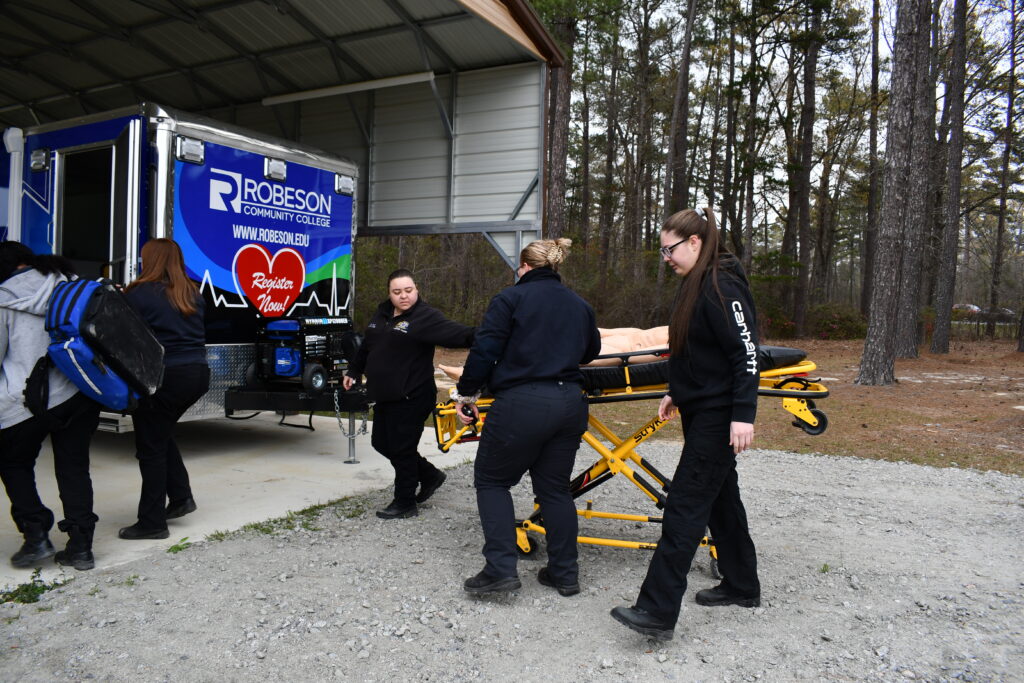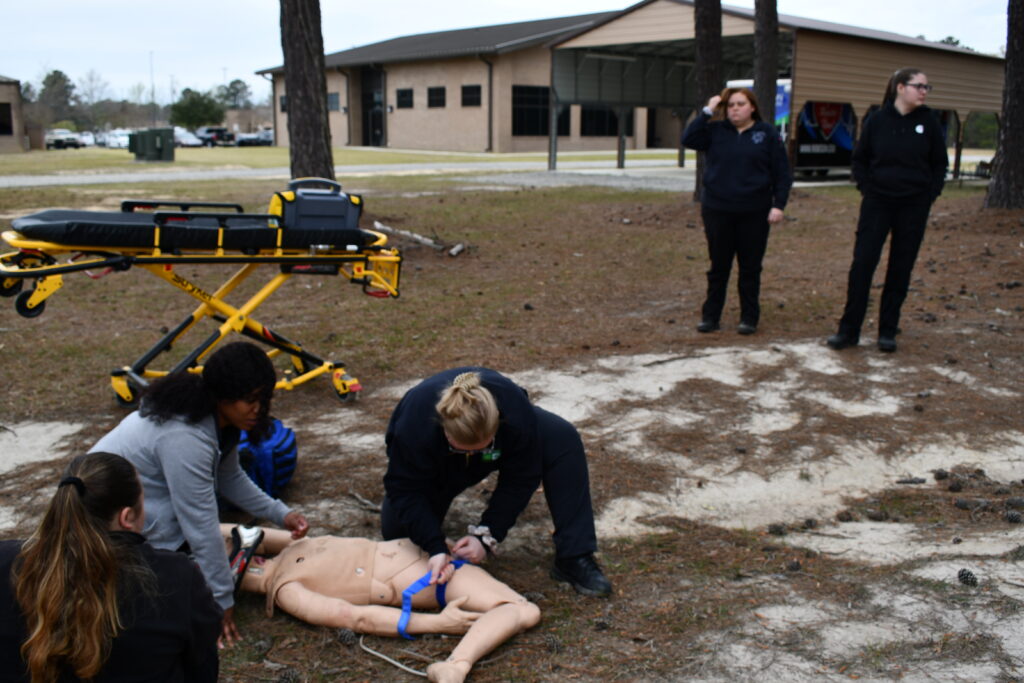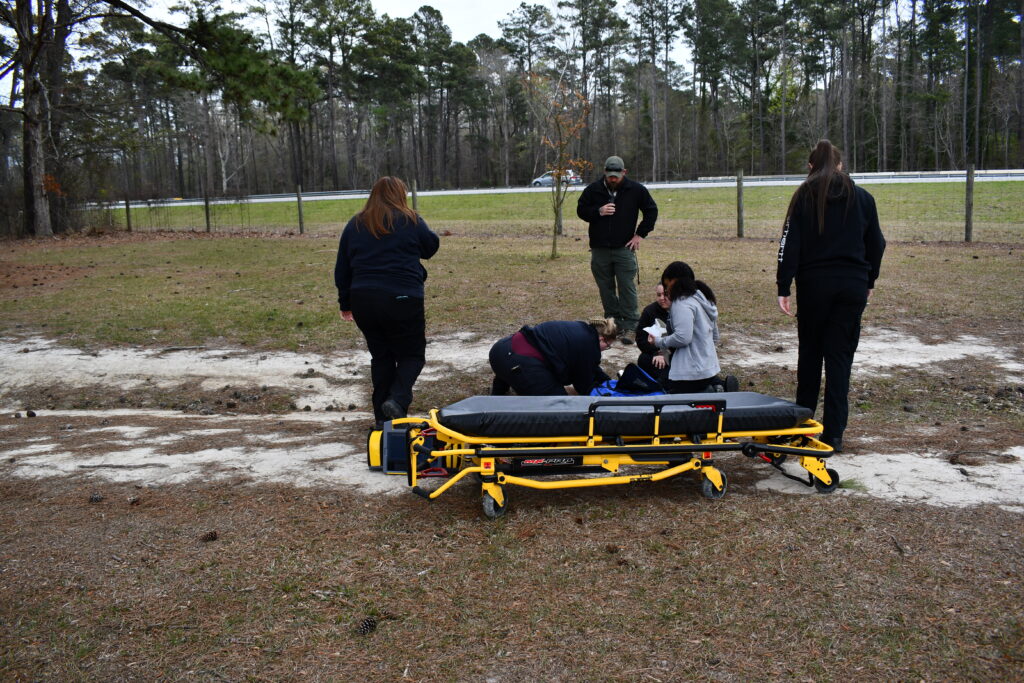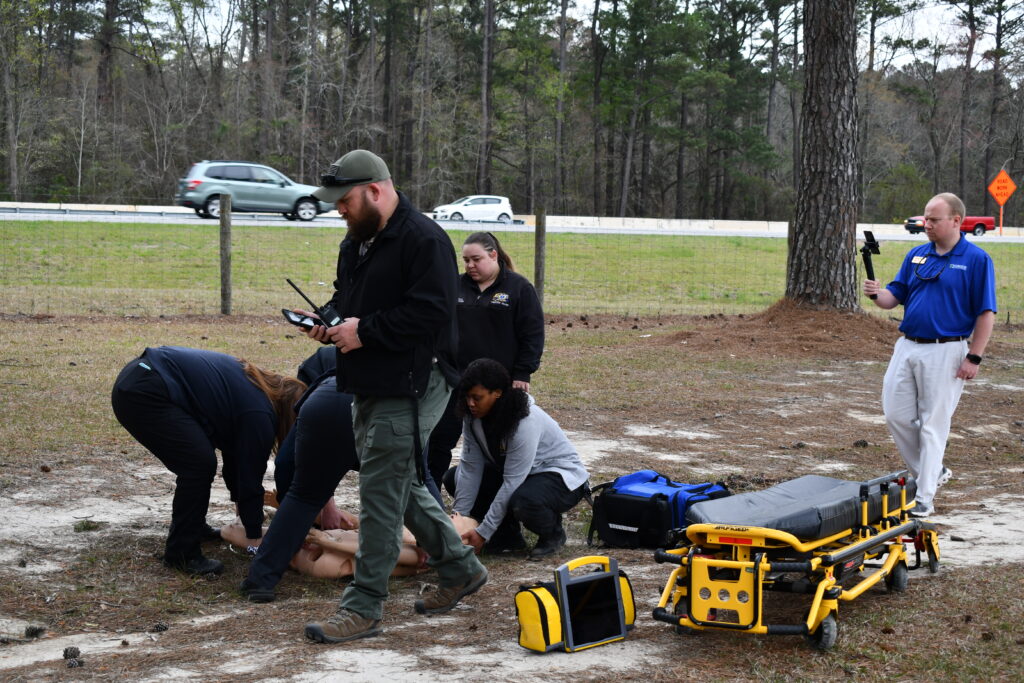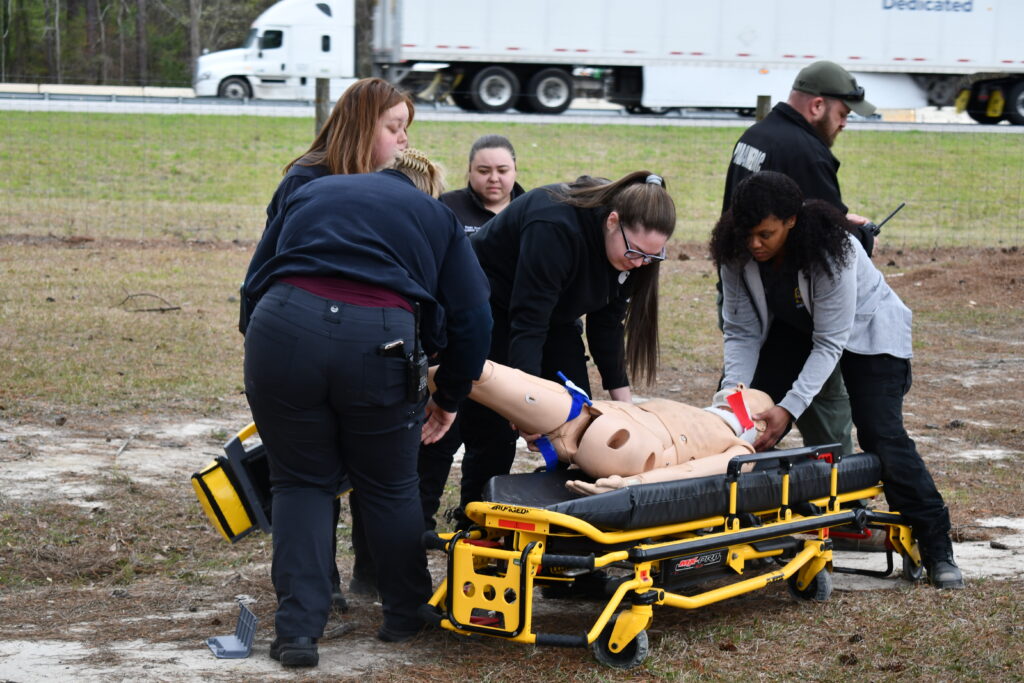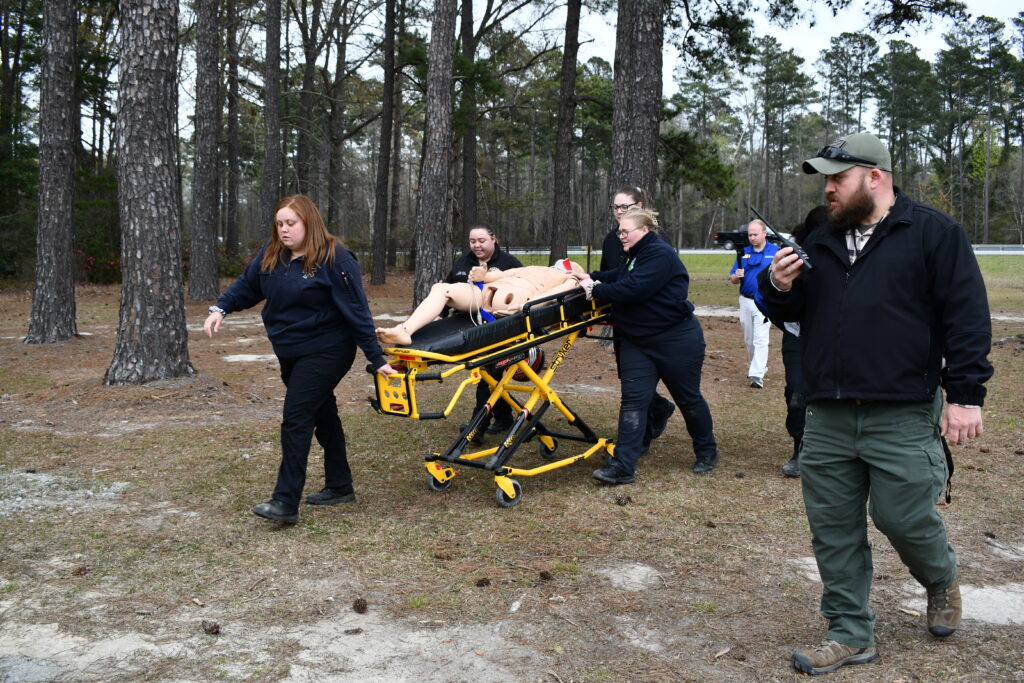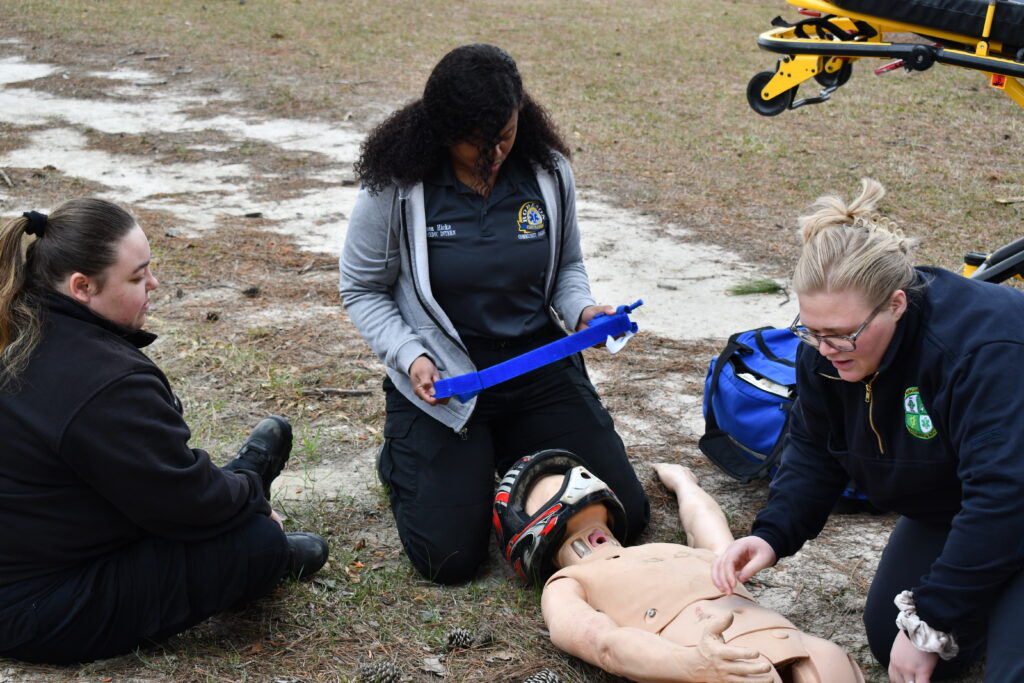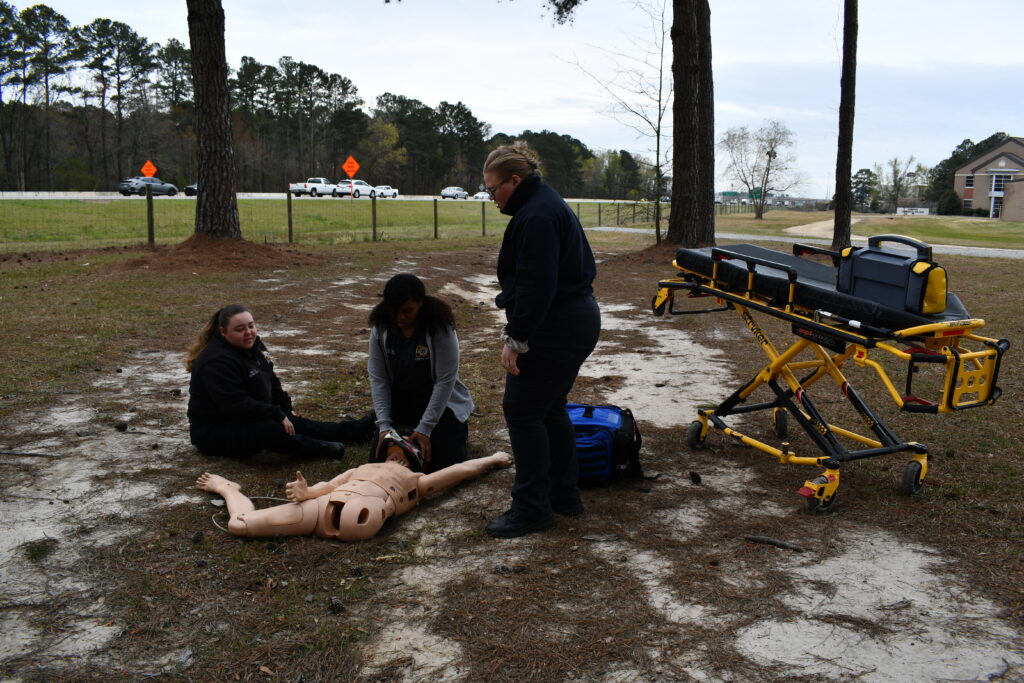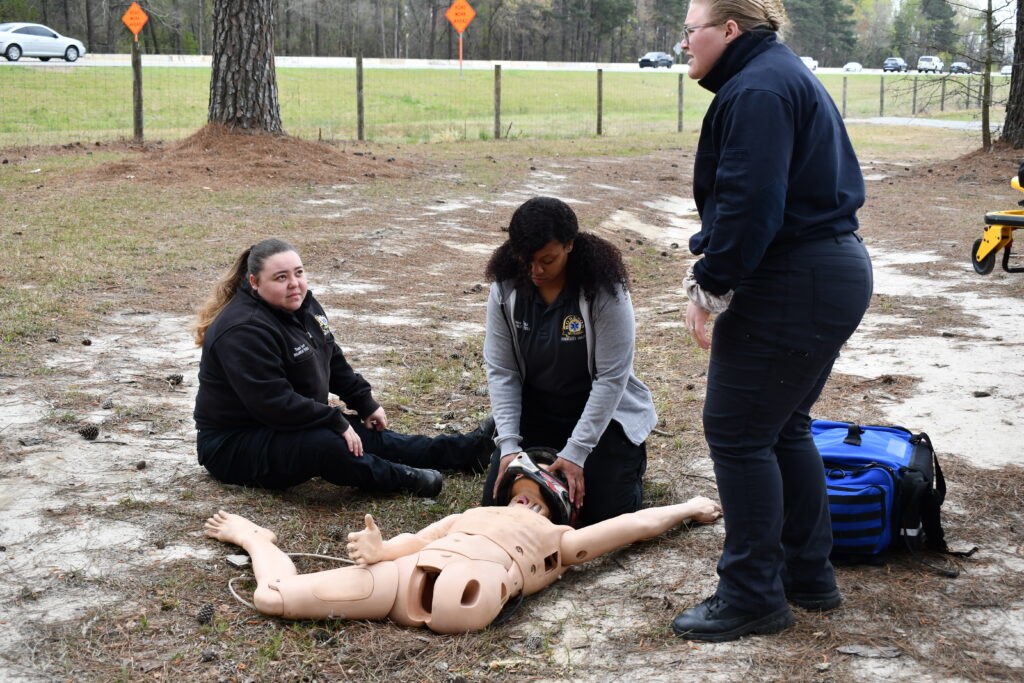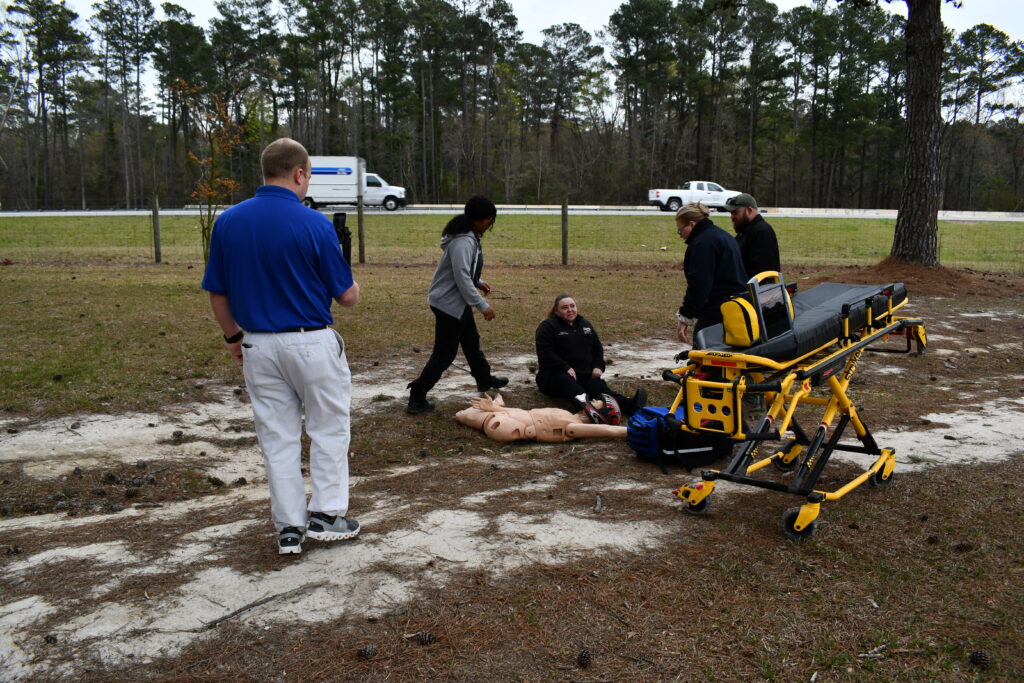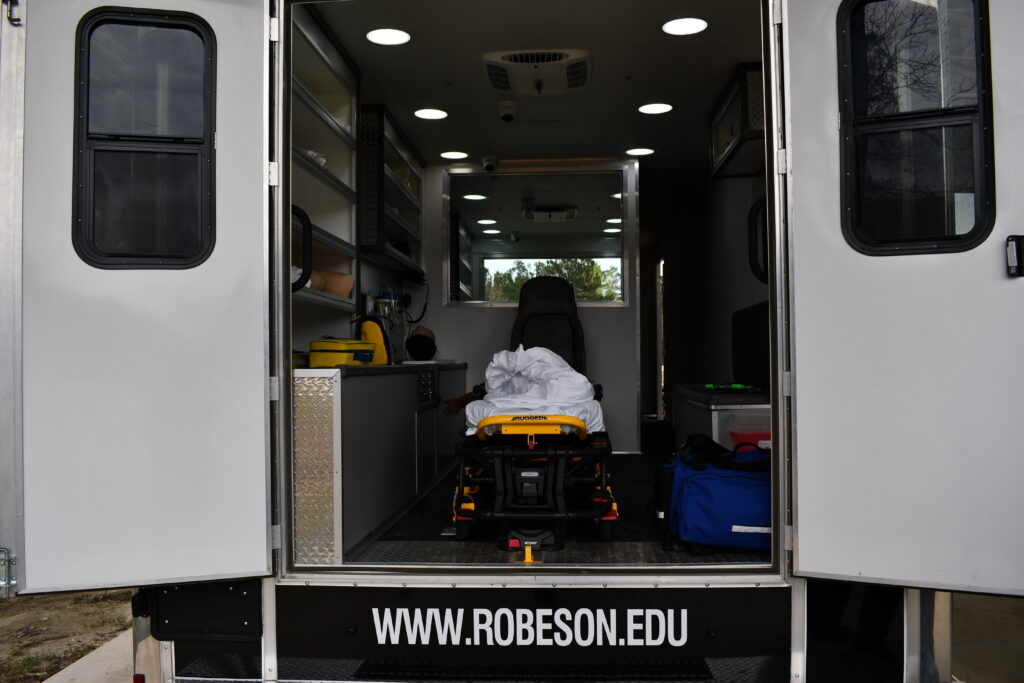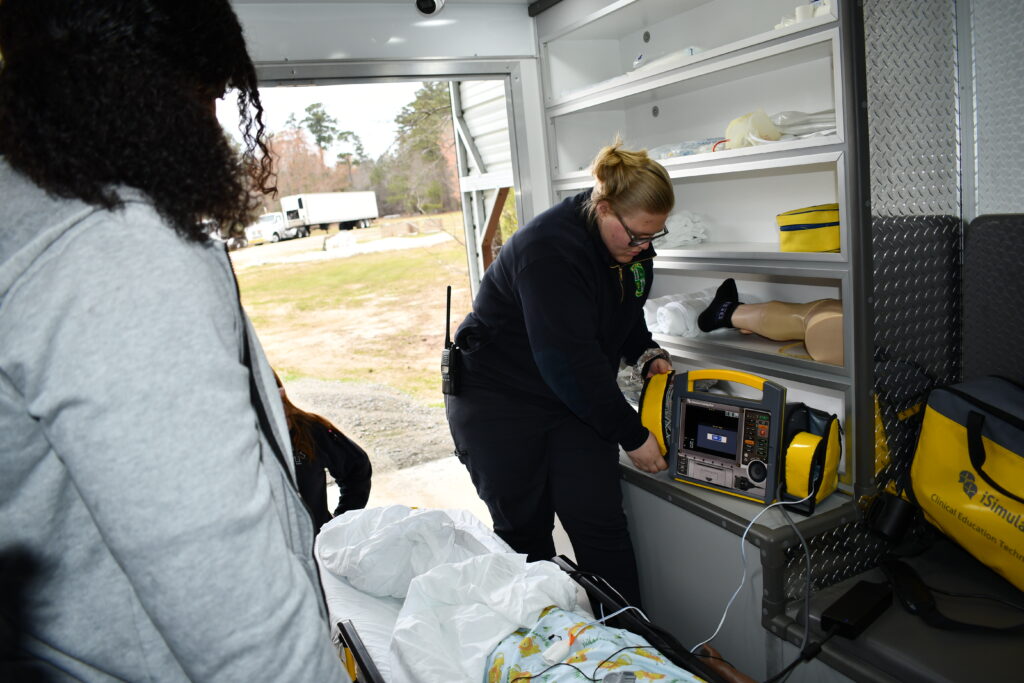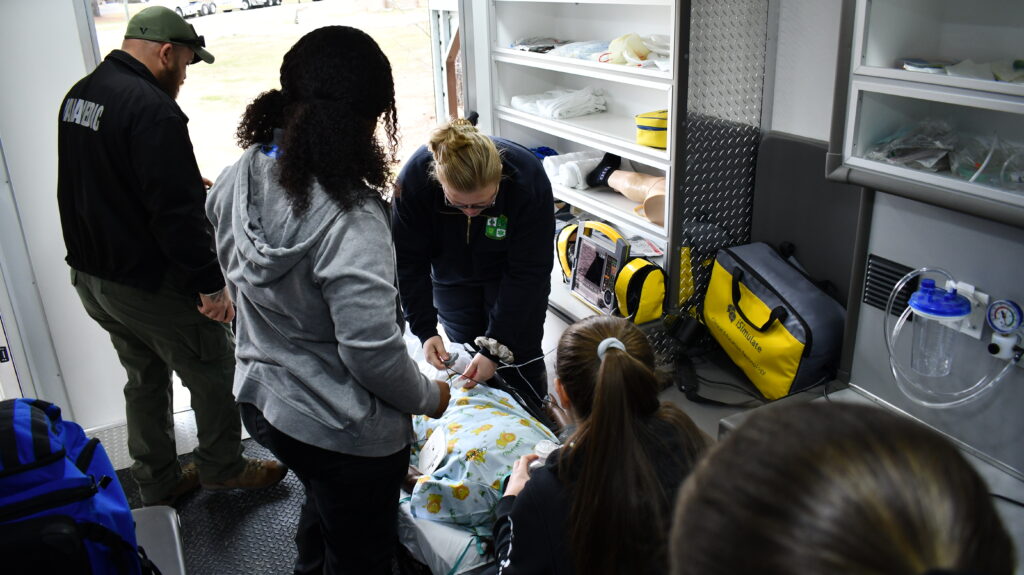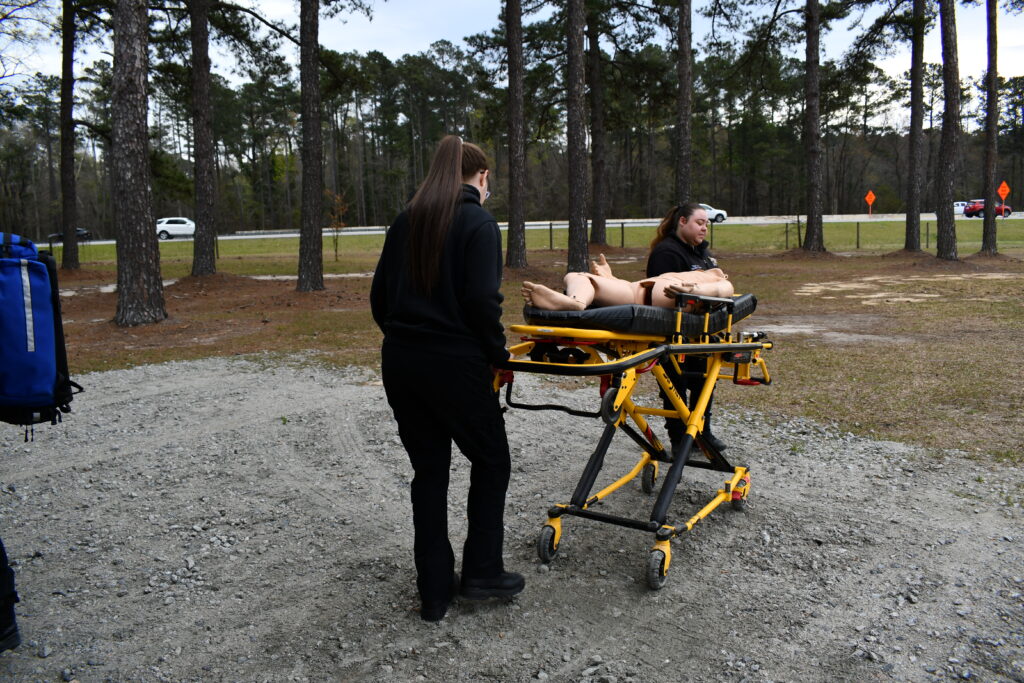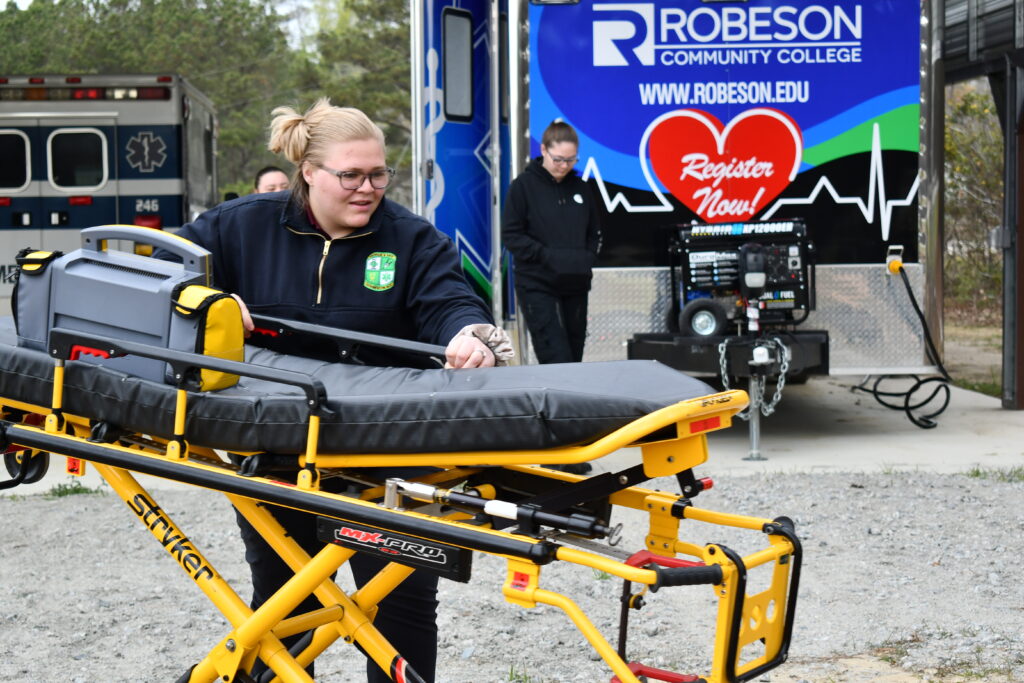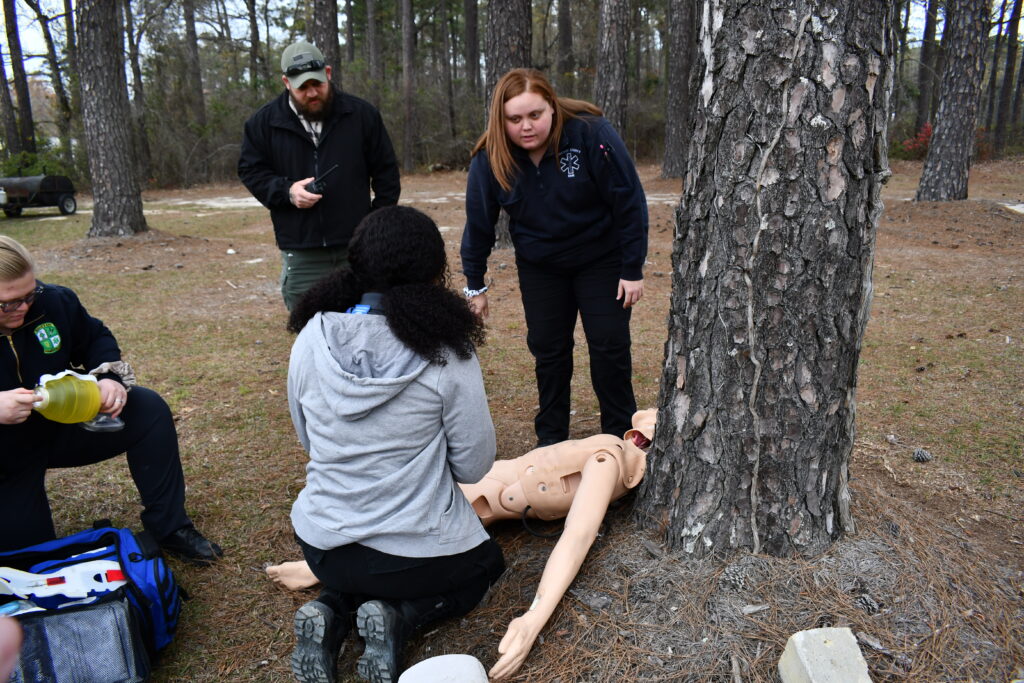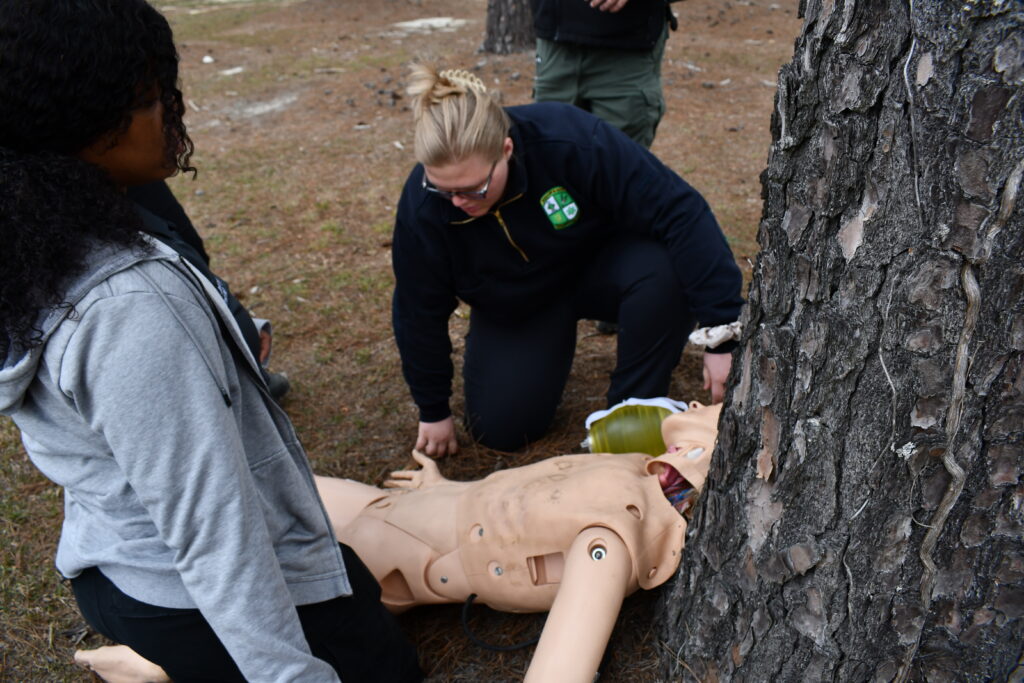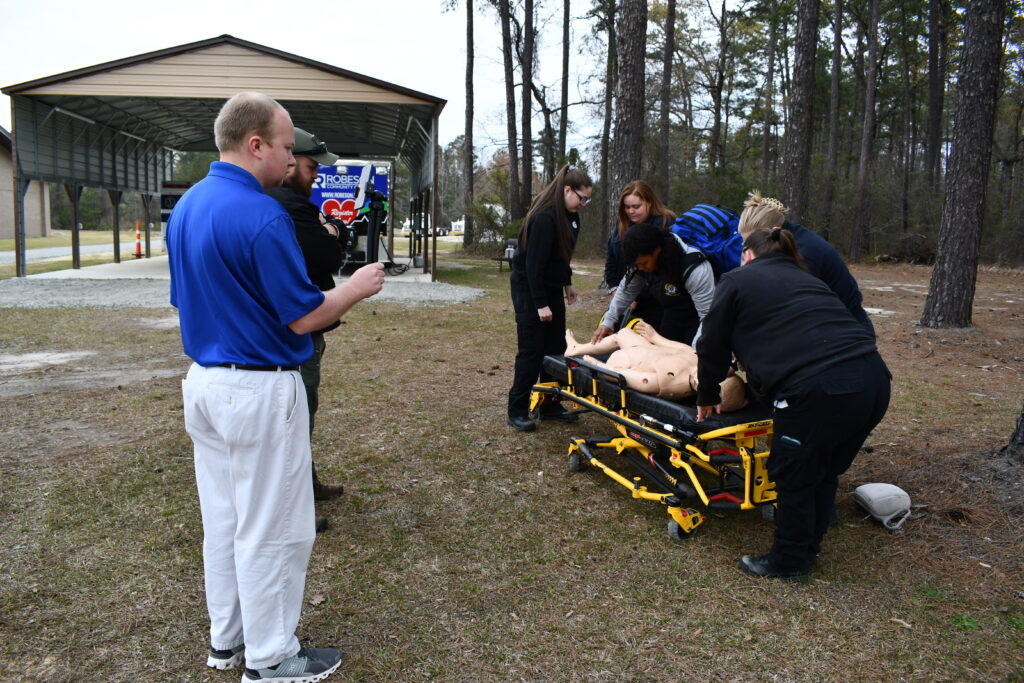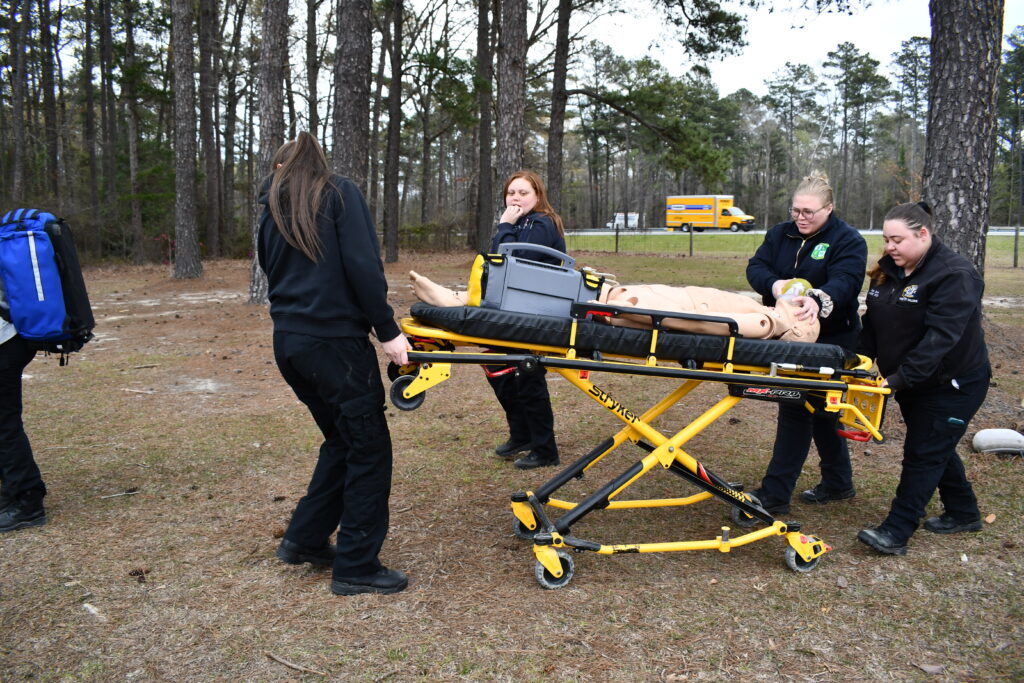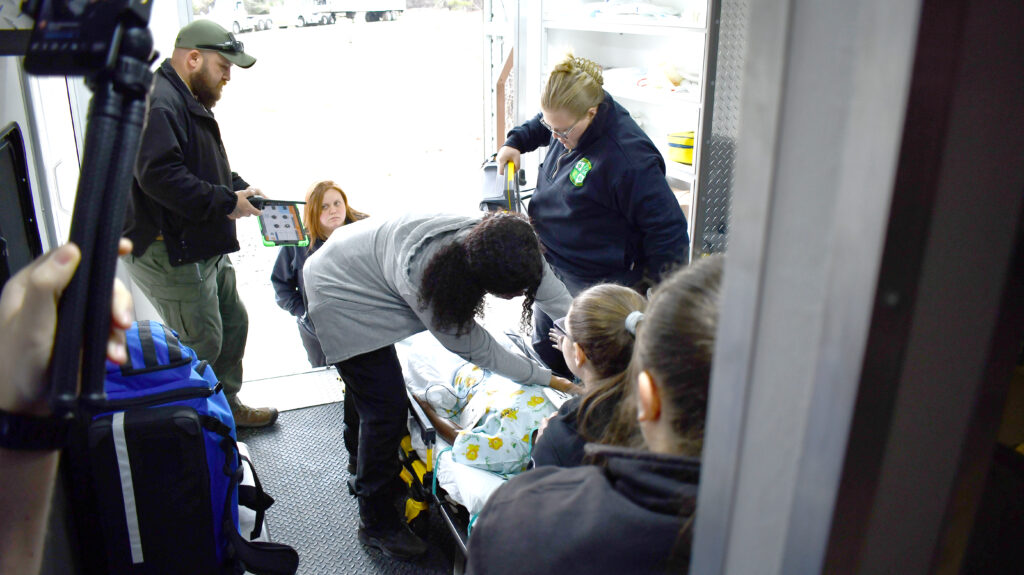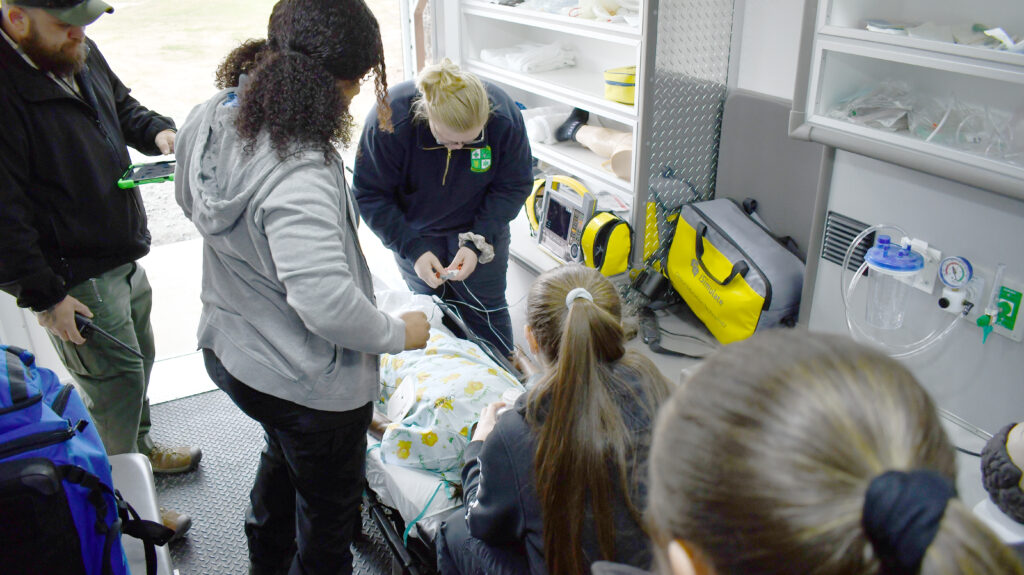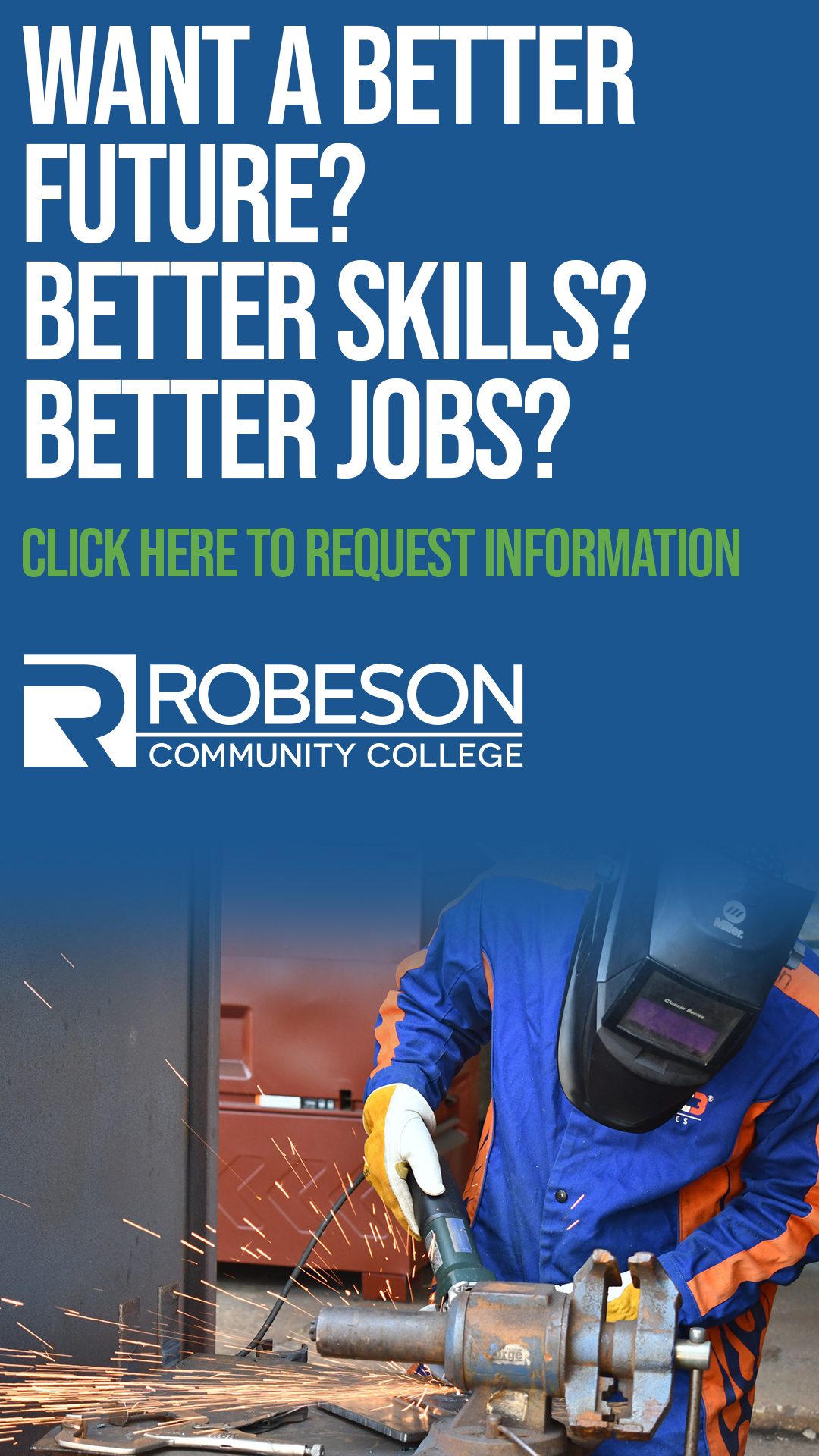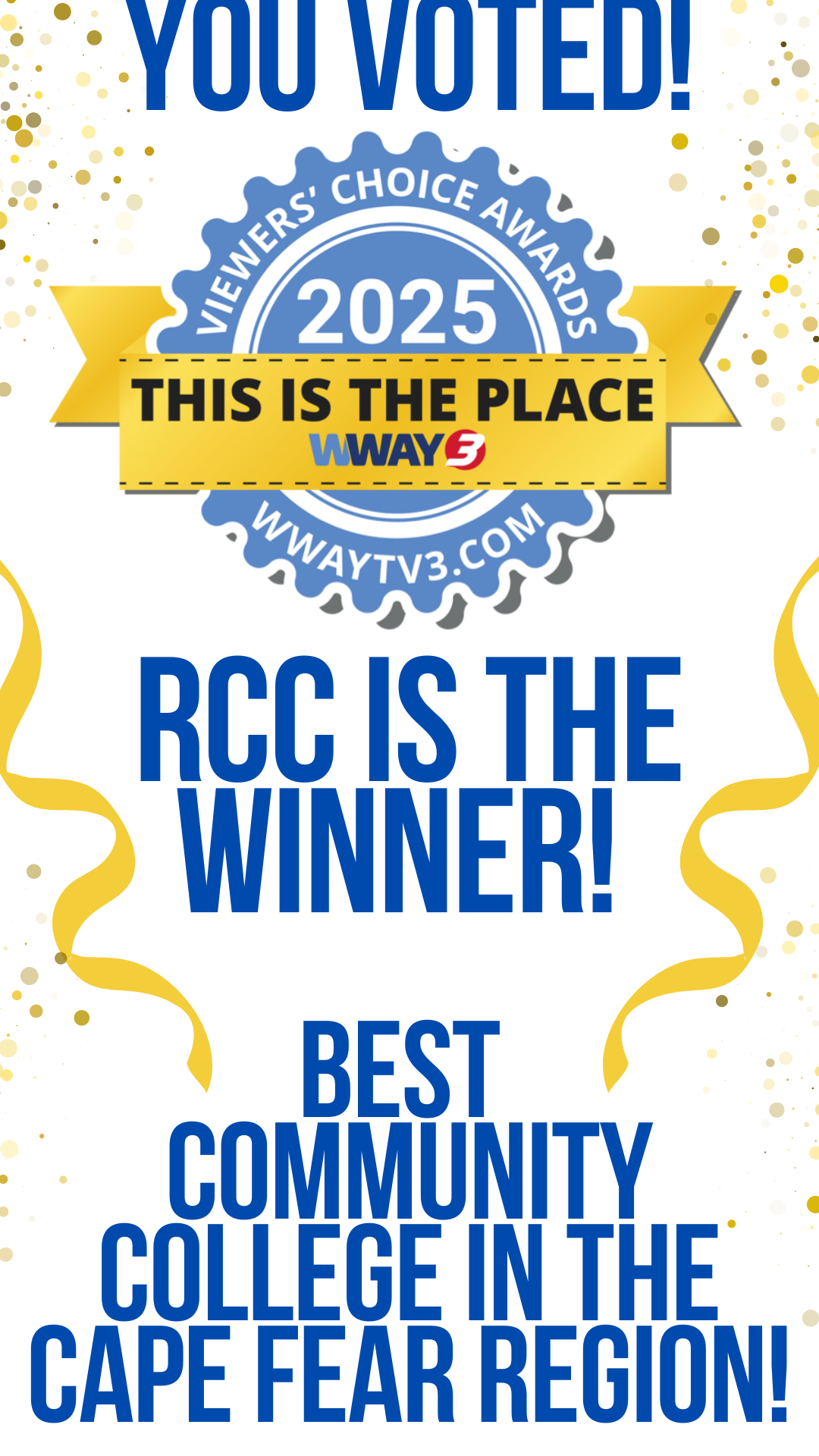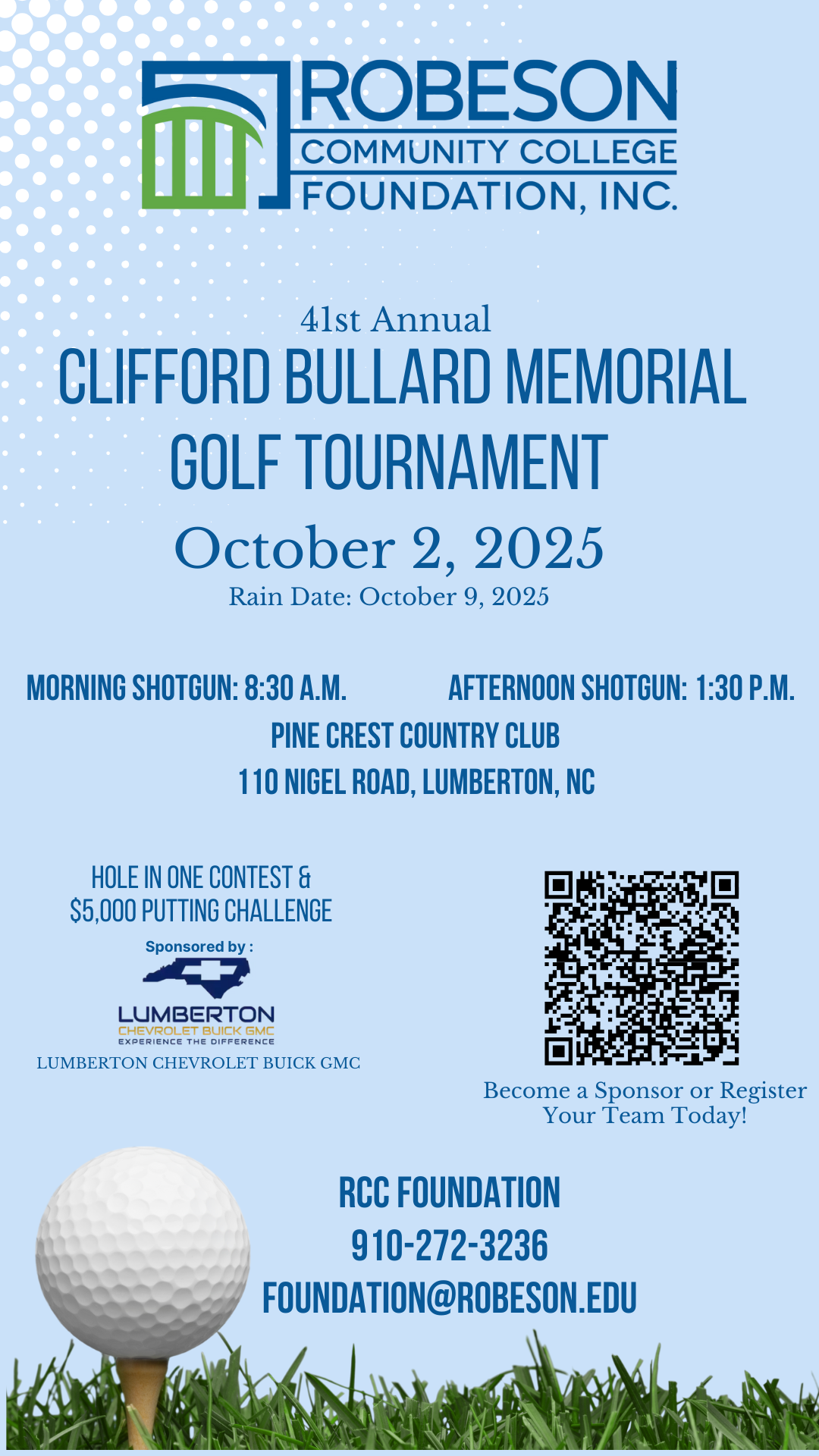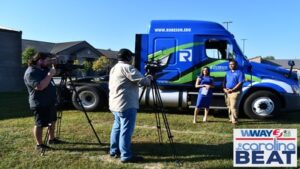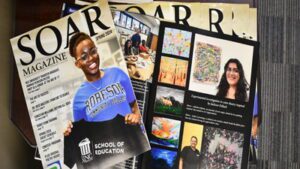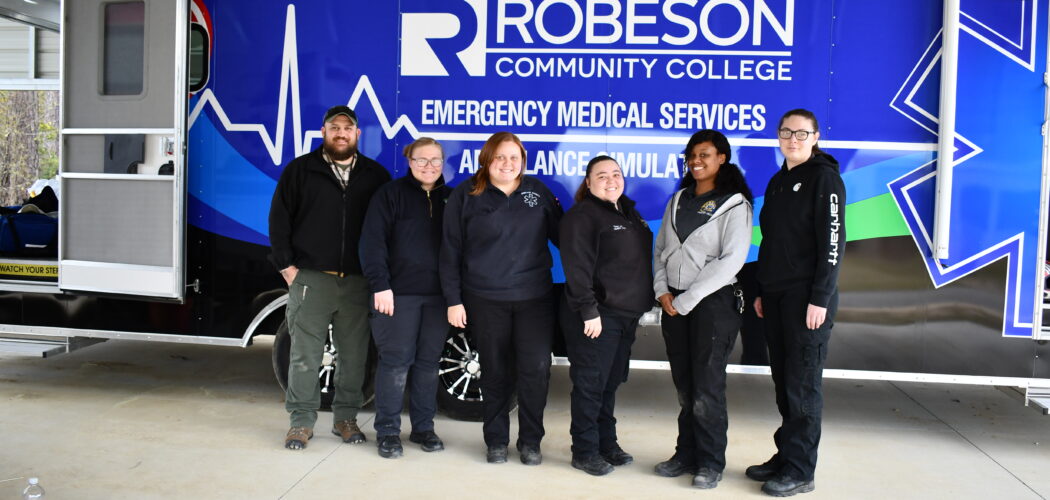
RCC’s EMS degree program sees growth amid shortage
With North Carolina and other states across the country facing a shortage of EMTs and paramedics, it is good news to report that the EMS program at Robeson Community College is flourishing, so much so that the program received an honorable mention for having the next to the highest percentage increase in enrollment growth for 2022.
“We are super excited to see an increased interest in EMS,” stated RCC EMS instructor Brad Byrd. “Just yesterday I spoke with a group of juniors and seniors from the Public School of Robeson County and 4 of them were interested in a career in EMS. The more exposure we can have to the community the better our programs will be.”
The increase in enrollment isn’t just good news for RCC, but also in combating the shortage felt locally.
“Our local EMS Director advised in a meeting just recently that they are now fully staffed,” Byrd said. “I would like to think RCC’s EMS program had a small part in that. Enrollment increases always trickle down to the front line.”
The industry’s high employee turnover is one of the main factors behind the staff shortage. Typically, EMTs stay in the field on average for about five years before changing careers or they opt to progress through healthcare in another role, a trend Byrd says he sees frequently.
“Many of the students that choose the degree pathway are looking to take their education further and transfer to a university,” Byrd said. “Many of our alumni are now Physician Assistants, and one is an MD.”
When COVID hit, nearly one-third of EMTs nationwide quit, setting a startling precedent, and causing a critical shortage across the country, with many first responders reporting that they felt drained and overwhelmed.
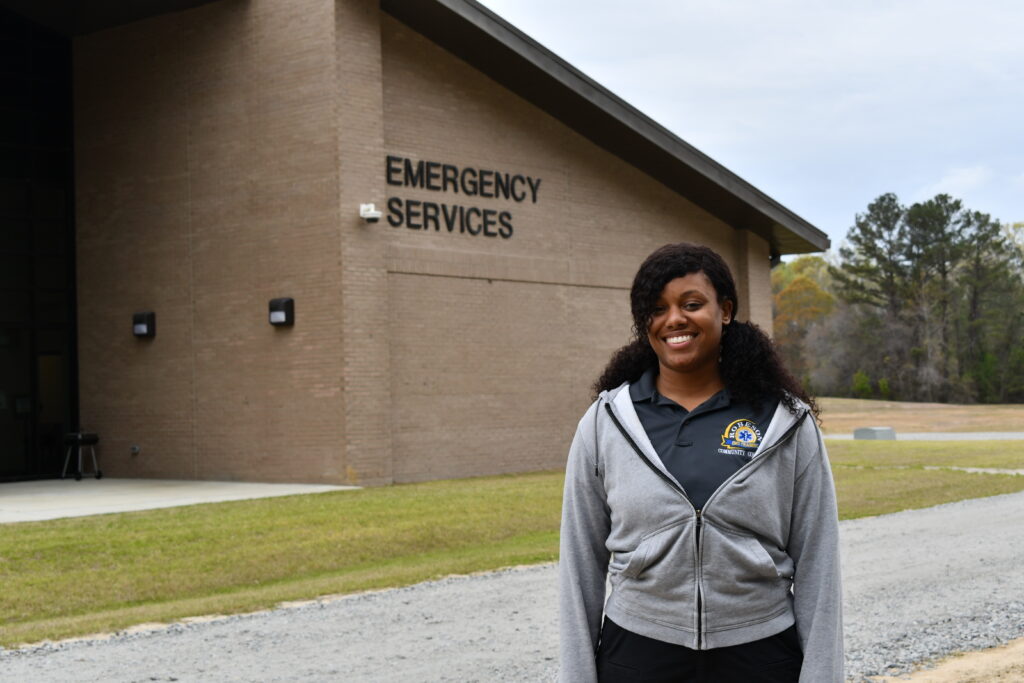
Second year EMS student Janea Hicks says that she loves the hands-on training at Robeson Community College and the diverse knowledge and experience of her instructors, saying she doesn’t think she could have found an opportunity like this to learn and grow as a first-responder anywhere else.
“EMS in general, even outside of school, can be stressful,” stated second-year EMS student Janea Hicks who advocates for self-care. “You can’t pour from an empty cup, so you need to know how to take care of yourself, so you can take care of others. You need to have a solid knowledge of what is good for you, like how do you decompress, and how do you handle your stress. Knowing that about yourself is important.”
Working as a first responder is fast-paced, dynamic, and requires quick thinking. It often gives those working in the field an adrenaline rush as they encounter various unexpected scenarios.
“Every day is different,” Byrd said. “No two days are ever the same for an EMT or paramedic, you never know what you’re going to get called out to.”
But for Hicks, that’s part of what makes the thought of a career as a paramedic refreshing.
“I like being challenged and doing something different, it pushes us and makes us a way better provider,” said Hicks. “I really like helping people. You go to people on their worst day, and you get to be a part of their story and play a small role in making their day just a little bit better.”
Hicks became an EMT while serving in the US Army National Guard. It’s part of what brought her to North Carolina.
“I joined the Army in 2018 and signed up as a 68W for my Military Occupational Specialty,” said Hicks. “My ex-husband was on active duty, so if he were to be stationed somewhere else, I knew I wouldn’t have to find a new job.”
The term 68W refers to a Combat Medic Specialist, which is a soldier who is primarily responsible for providing emergency medical treatment on the battlefield and in humanitarian situations.
Hicks says that being a 68W also opened the door to civilian jobs with being listed on the EMS National Registry, an opportunity also available to those who complete EMT training at Robeson Community College.
Hicks admits at times juggling work, family, and school can be hard.
“You have to be good at time management and I’m trying to learn how to better prioritize my time,” said Hicks. “I have five kids, I work full-time, I’m in school full-time, I’m in clinicals, it can become a lot.”
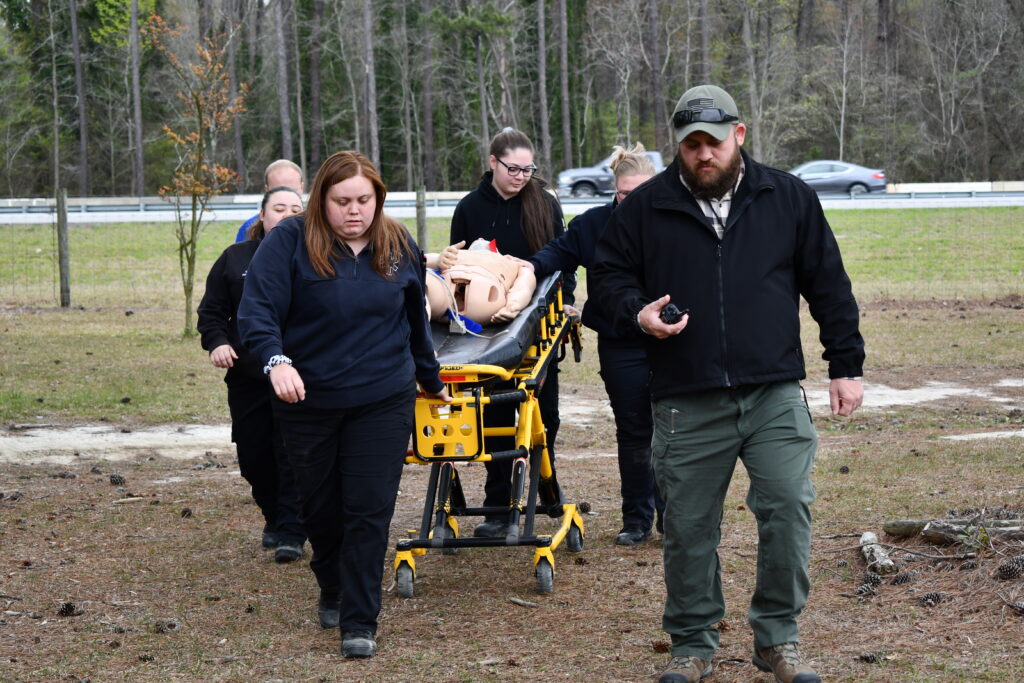
Students in the EMS program at RCC learn through mock-scenarios that provide hands-on experience, preparing them for a career as a paramedic.
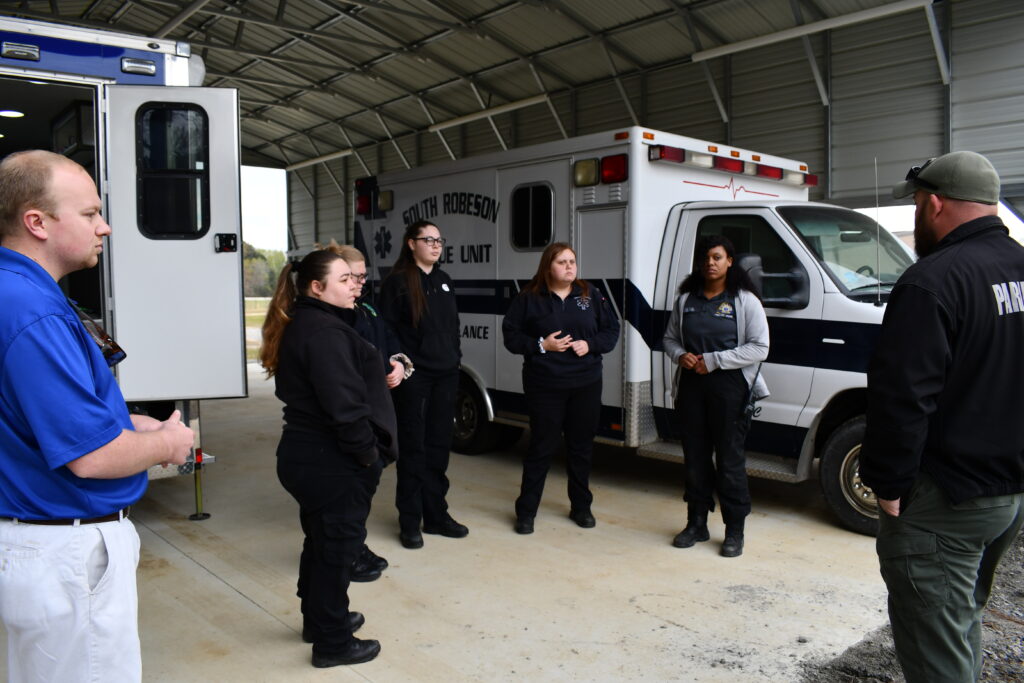
Students in the EMS huddle for a debrief after each mock scenario to see how they can improve their skills in emergency medicine.
Students in the Emergency Medical Science degree program at Robeson Community College learn through mock scenarios that depict real-life situations. Using simulated labs, students gain the hands-on experience they need to be successful once they graduate and start working in the field. After each simulation, students debrief with their instructor to discuss what they could have done better.
“I learn a lot, there’s lots of opportunity to learn different things,” said Hicks. “The staff has such diverse backgrounds, so I feel like no matter who I go to or who my teacher is that day, I’m learning something new and getting different perspectives, and I enjoy that the most about the program.”
“And, there’s tons of equipment here that you won’t find anywhere else, like the simulation trailer, and there’s educational opportunities outside of the program, extra certifications that you can gain, and there are just so many opportunities to continue to grow and learn, I appreciate that,” Hicks said. “I love Robeson Community College and I’m super happy that I ended up here.”
Robeson Community College is currently accepting applications for its Fall 2023 cohort of EMS classes. Please contact Brad Bryd for more information at tbyrd@robeson.edu or (910) 272-3408. To learn more about Emergency Medical Services, including continuing education opportunities as well as the associate of applied science degree program, please visit https://www.robeson.edu/coned/ems/.
